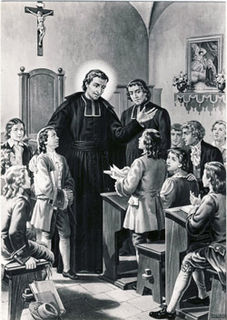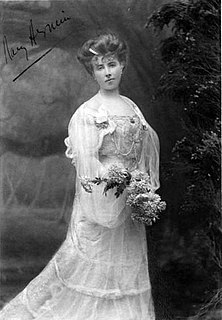A Quote by Margaret Atwood
His father was self-made, but his mother was constructed by others, and such edifices are notoriously fragile.
Related Quotes
When Christ was about to leave the world, He made His will. His soul He committed to His father; His body He bequeathed to Joseph to be decently interred; His clothes fell to the soldiers; His mother He left to the care of John; but what should He leave to His poor disciples that had left all for Him? Silver and gold He had none; but He left them that which was infinitely better, His peace.
As in the natural life a child must have a father and a mother, so in the supernatural life of grace a true child of the Church must have God for his Father and Mary for his mother. If he prides himself on having God for his Father but does not give to Mary the tender affection of a true child, he is an impostor and his father is the devil.
The idea that the Lord our God is not a personage of tabernacle is entirely a mistaken notion. He was once a man. Brother Kimball quoted a saying of Joseph the Prophet, that he would not worship a God who had not a Father; and I do not know that he would if be had not a mother; the one would be as absurd as the other. If he had a Father, he was made in his likeness. And if he is our Father we are made after his image and likeness.
Don't drop him," said Peter's mother to his father. "Don't you dare drop him." She was laughing. "I will not," said his father. "I could not." For he is Peter Augustus Duchene, and he will always return to me. Again and again, Peter's father threw him up in the air. Again and again, Peter felt himself suspended in nothingness for a moment, just a moment, and then he was pulled back, returned to the sweetness of the earth and the warmth of his father's waiting arms. "See?" said his father to his mother. "Do you see how he always comes back to me?





































